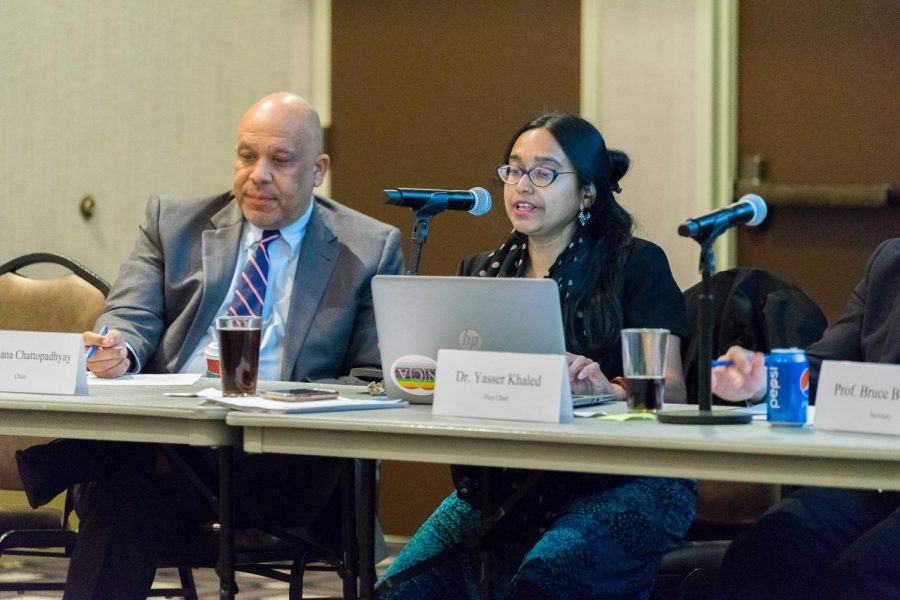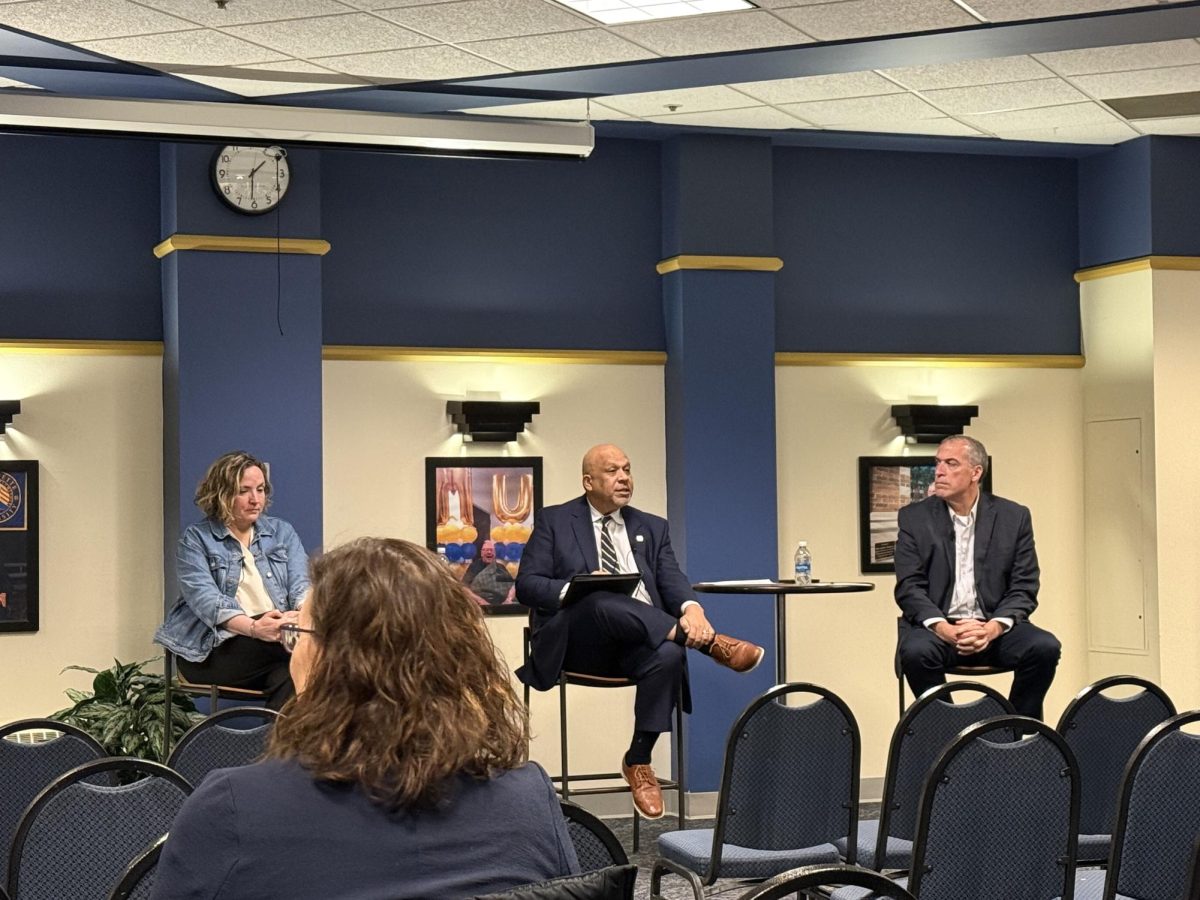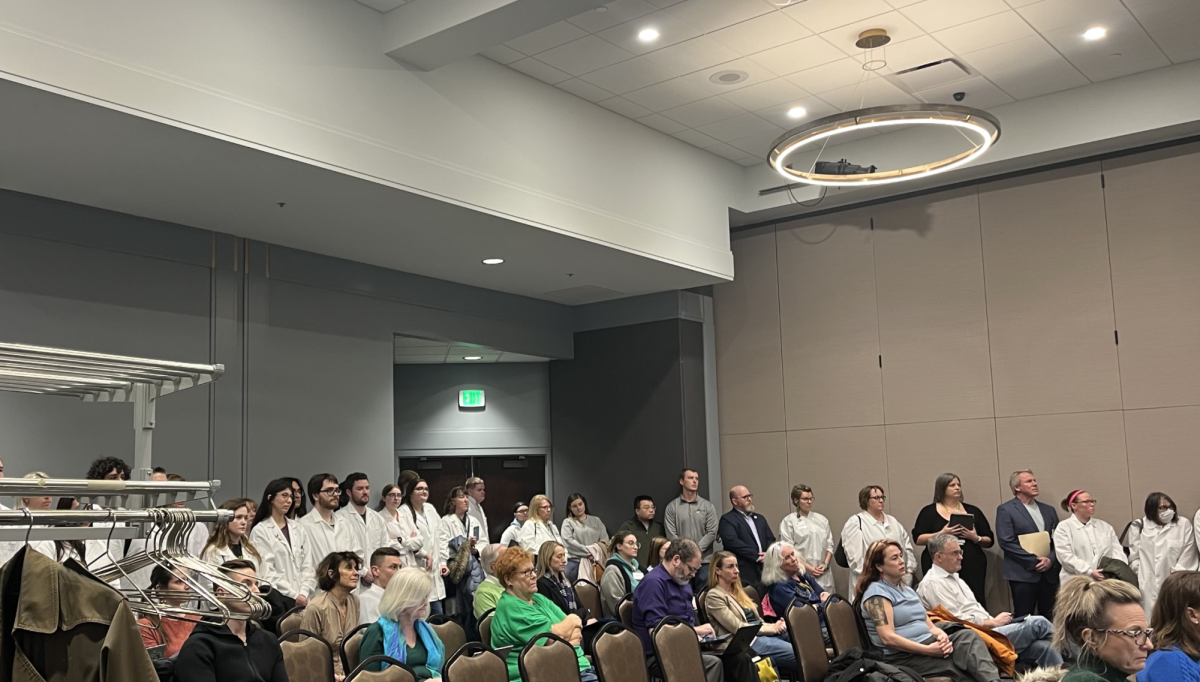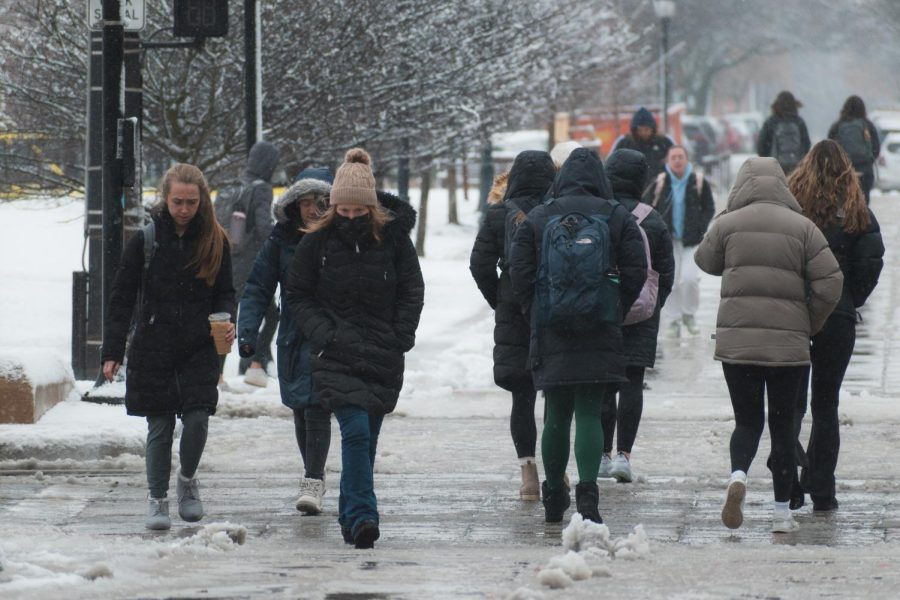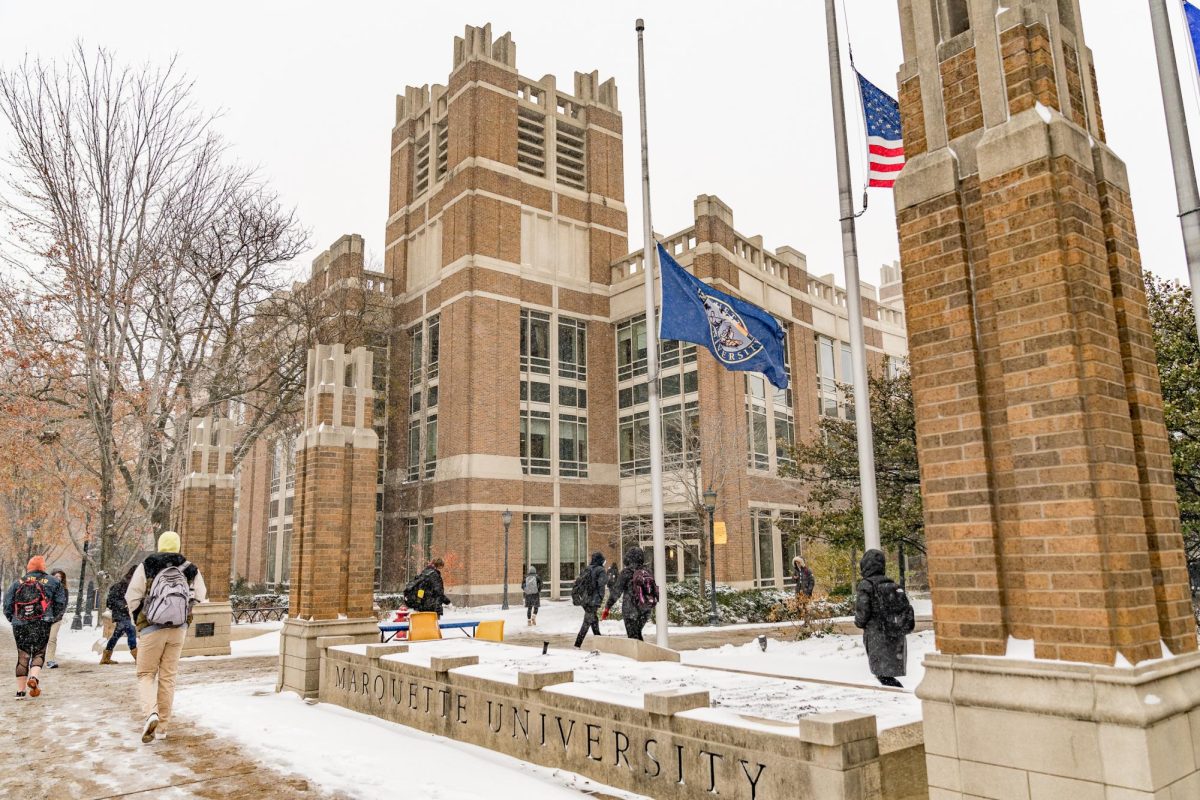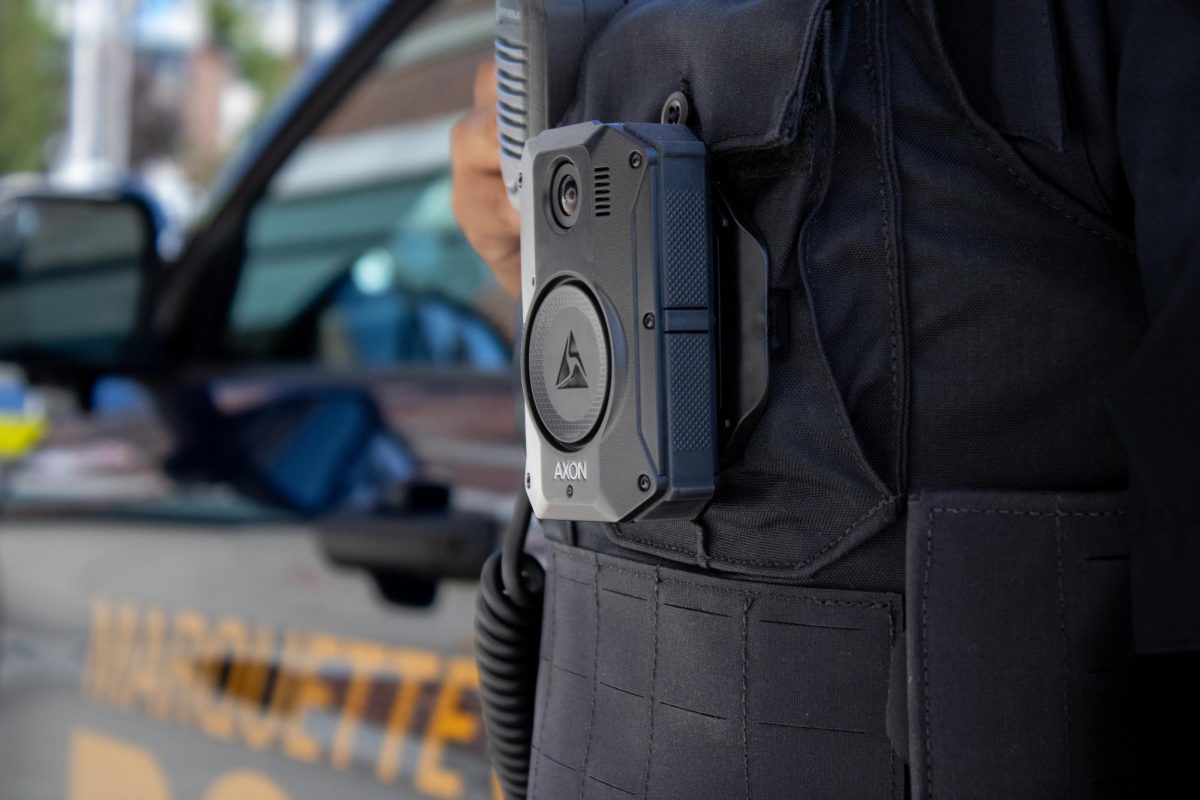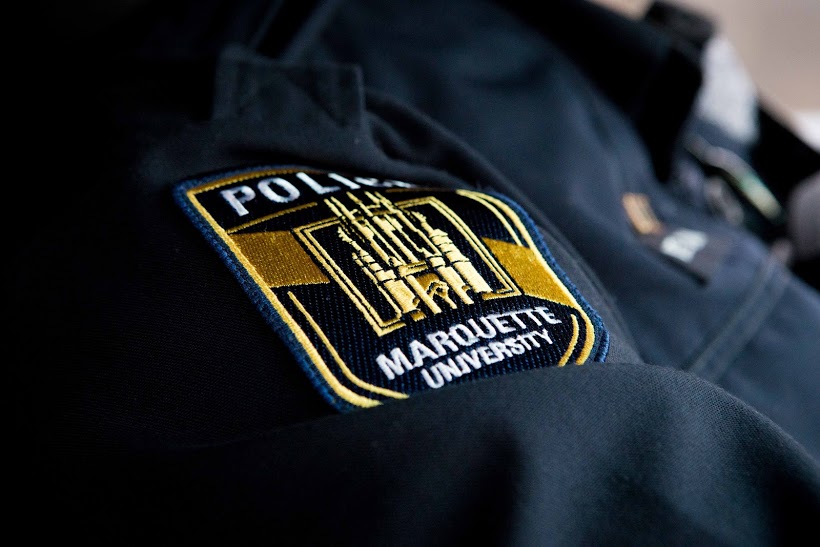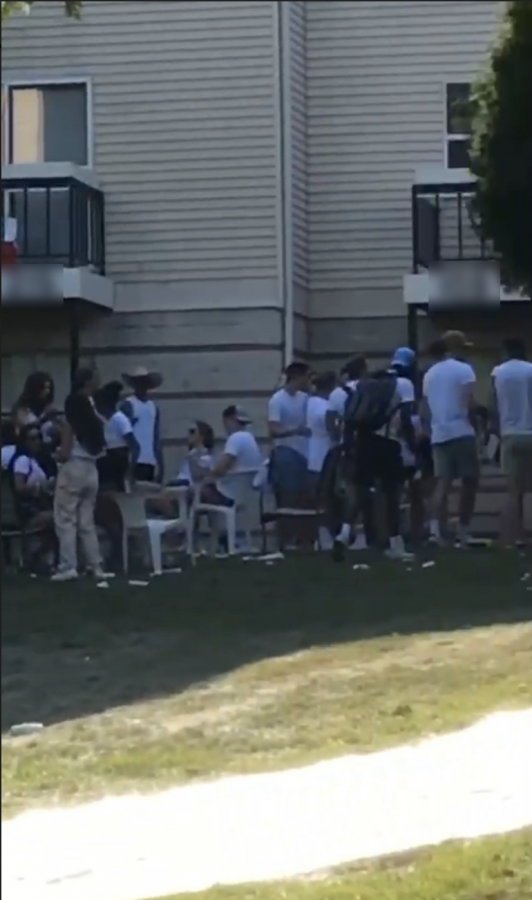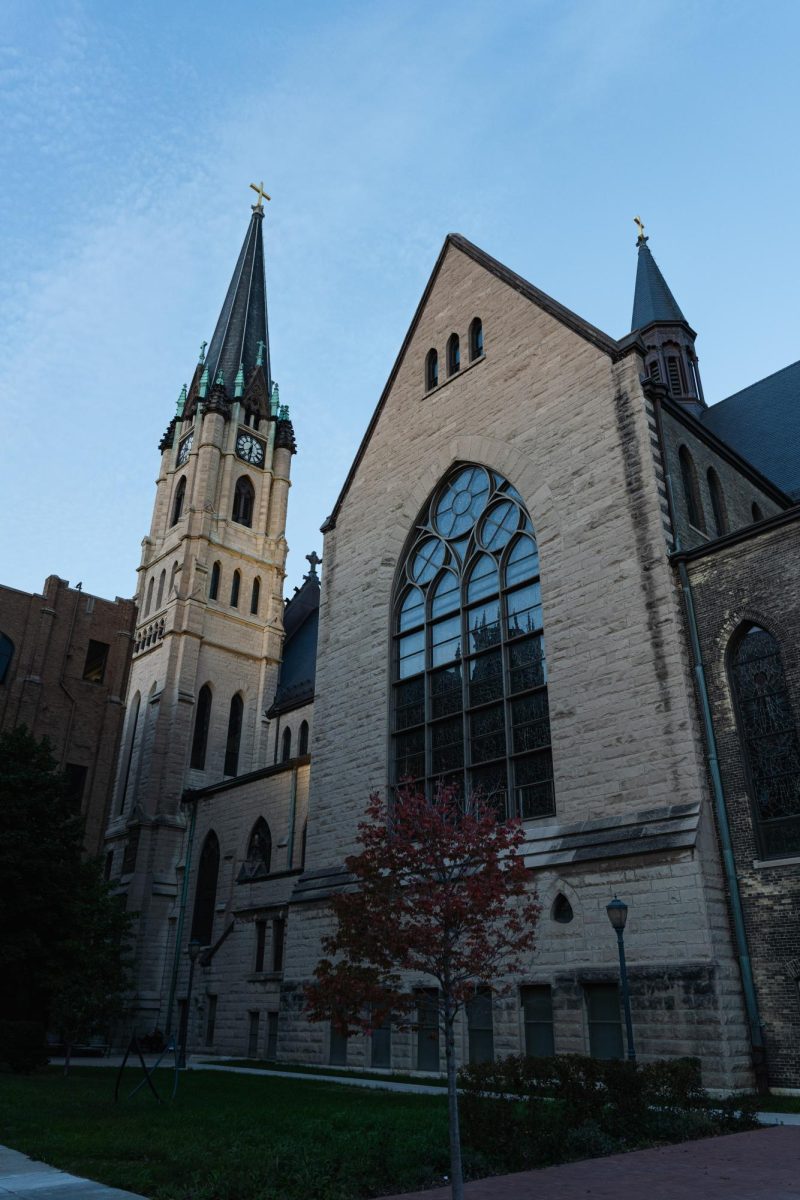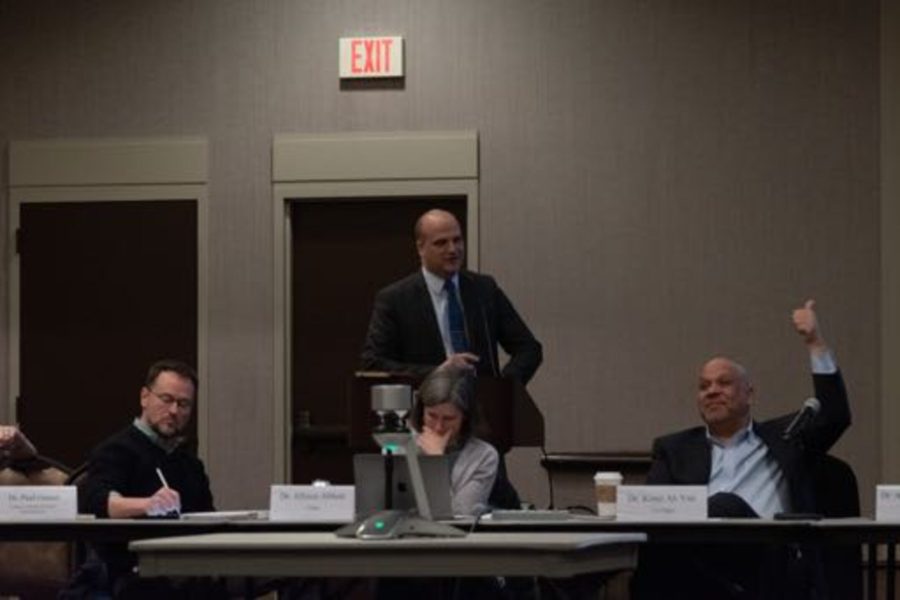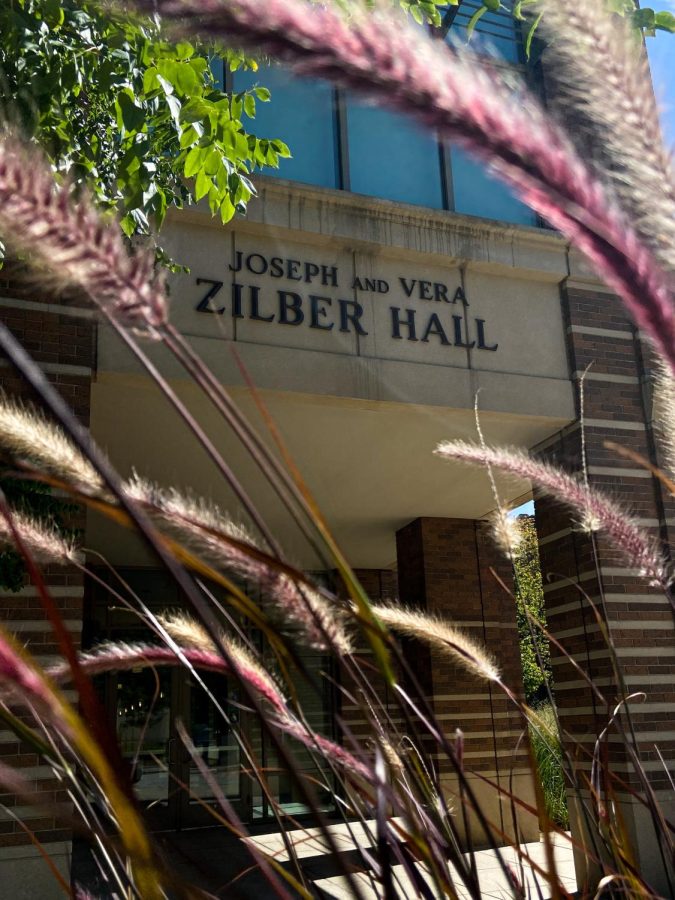The University Academic Senate met Monday to review COVID-19 procedures and their effectiveness as the university began its second week of in-person, online and hybrid learning.
Xavier Cole, vice president for student affairs, said that some adjustments need to be made now that the COVID-19 Response Team has seen the practical applications of its initial plans.
“There are going to be things we are going to need to shore up,” he said. “We are going to need to account for human behavior.”
Cole said that Joya Crear, assistant vice president for student affairs, is now helping manage some components of campus operations, such as coordinating communication with the medical team, since the addition of COVID-19 testing and tracking has proven a challenge.
He also said that Marquette has partnered with Froedtert Medical College to implement its GetWell Loop, an app which will allow quarantining students to check in daily with health professionals. Such students will be able to track their symptoms with a care package they will receive, which will include a pulse-oximeter that measures pulse and blood oxygen levels.
Keli Wollmer, executive director of the Marquette University Medical Clinic, said that students who have tested positive and are in isolation will have a meal delivery service and around the clock access to nurses.
It is unclear whether the services Cole and Wollmer mentioned are only accessible to students in residence halls who need to isolate.
She also said that these students will be sent support literature and other mental health support systems, such as phone apps.
“We know isolation can be very trying,” she said.
Wollmer said that quarantining students will also receive support. They will be allowed to leave their rooms for limited reasons, such as to pick up food. Those in quarantine have possibly been exposed to the virus but are not in isolation because they have not tested positive.
She said that Marquette’s COVID-19 dashboard will improve now that the university is doing its own, on-campus testing.
“Faculty members are encouraging students to report (their symptoms),” Wollmer said. “We do want them to get tested and call to make an appointment.”
Wollmer said she thinks that fewer students are coming to the clinic than she expected, and thinks more students should get tested.
Laurie Panella, chief information officer, said that COVID Cheq is a symptom-monitoring and case-tracking tool that the university is using to identify members of the Marquette community that might be sick. It is a daily survey powered by Qualtrics through which students self-report symptoms by checking off which ones they have.
Panella said that all faculty, staff and students have been required to monitor their health through COVID Cheq, though some staff and at-home students have been allowed to opt-out as of this week.
She said that 75% of students participated last week, but that participation declined this past weekend. She said the university is hoping to get 80% participation. It is unclear what the consequences are for not filling it out.
The university is launching a contact tracing form next week, Panella said.
Jeffrey Kranz, assistant chief of the Marquette University Police Department and co-head of the Recovery Team, said that the team is troubleshooting issues as they come up.
“We were flooded with work up until about two weeks ago with the wrap up of campus operations,” he said. “We are taking a look at how recommendations are working now that they’re out in the field.”
Kranz said that the LIMO service, which used to transport students in small shuttle-buses around campus, has now been replaced with two large buses that run a fixed route.
“We took our Limo drivers and put them out on foot as a door-to-door foot escort,” he said. “We just can’t do smaller vans anymore.”
Kranz also said that MUPD has seen a marked improvement from last weekend in terms of on-campus parties.
“We definitely saw less attendees at parties, people wearing masks, but not all of them,” he said. “We’re seeing a change in culture, and let’s face it, we’re trying to change culture.”
Kranz said that MUPD officers are taking an education approach rather than a punishment approach at parties around campus.
“I think we have to convince our students that reporting violations is the socially responsible way to go even if it means risking social stigma,” Joshua Burns, associate dean for academic affairs, said in the chat section of the Microsoft Teams meeting.
John Su, vice provost for academic affairs, said that the university is working on several next steps, including the spring 2021 course schedule and fall 2020 contingency plans.
“Normally we would already have the course schedule largely well underway,” he said. “The goal is to have the first round of that done by September 21.”
Su also said that the university is planning on releasing faculty and student checklists for transitions to online learning in order to prepare for a possible shift online.
“The coming weekend will represent a likely inflection point for this semester and we need to be prepared for this possibility that this inflection point may go in an undesirable way,” he said. “We will discover this together in the next week or so.”
In a follow up email, Su said that he believes the Marquette community can be different from other college campuses.
“What happened at Notre Dame and UNC is not destiny, but the accumulation of individual decisions by good people – our friends, our students, our colleagues,” Su said in the email. “On behalf of President Lovell and Provost Ah Yun, I would express deep gratitude to all the students, faculty, and staff who have been keeping our community pledge, wearing masks (and) maintaining social distancing. We will get through this together.”
This story was written by Shir Bloch. She can be reached at shir.bloch@marquette.edu.

